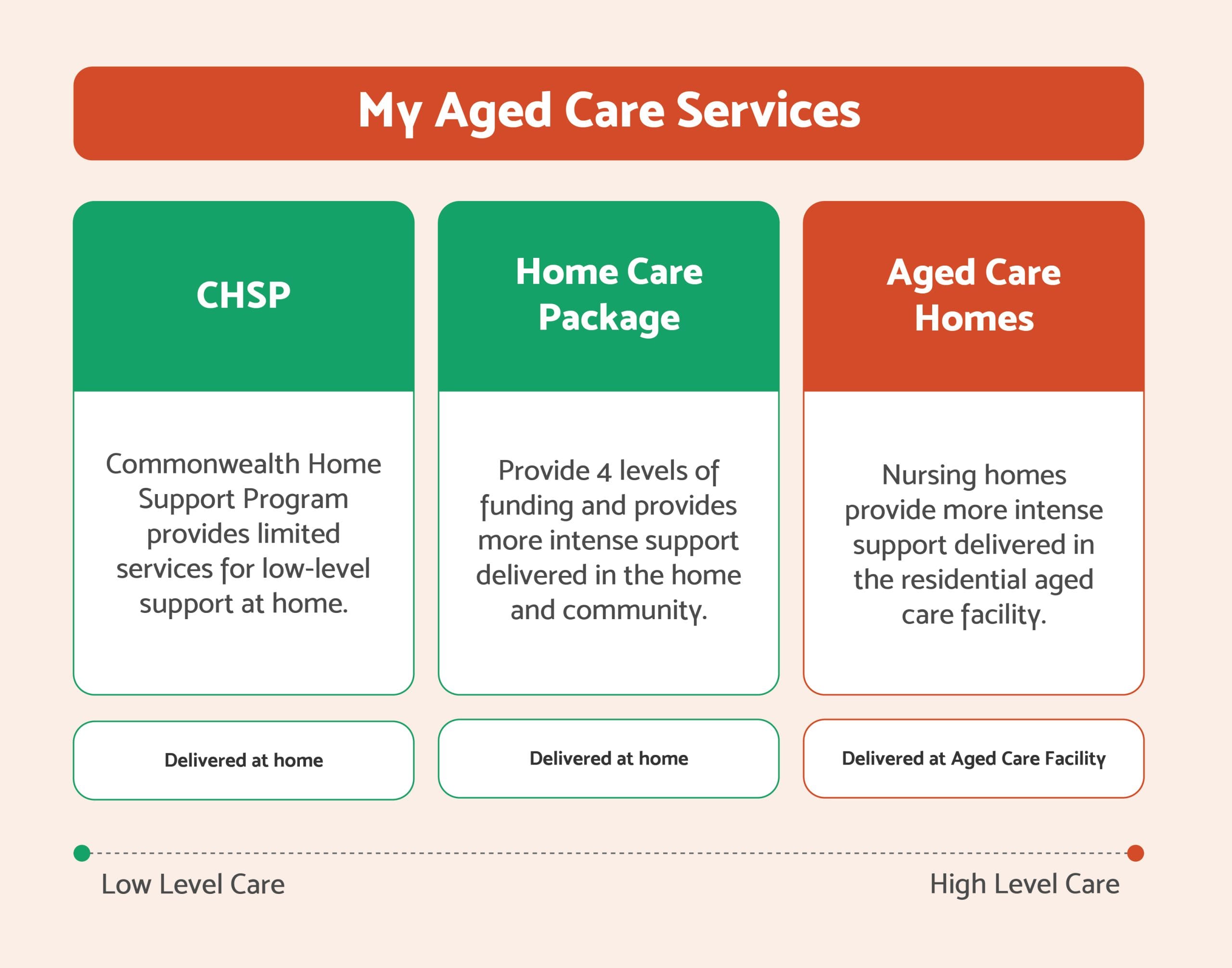All Concerning Home Care Providers for People With Disabilities: NDIS Registered Assistance
Home care services under the NDIS play a pivotal function in sustaining people with handicaps. These services are made to improve everyday living via customized assistance, ranging from individual like wheelchair assistance. Comprehending how to browse these options can be intricate. This summary checks out the different facets of NDIS home treatment, from readily available solutions to the choice of companies, highlighting necessary factors to consider for those seeking support. The journey toward equipped treatment begins right here.
Comprehending the NDIS and Its Function
The National Handicap Insurance Policy Scheme (NDIS) acts as a transformative framework designed to provide support and solutions for people with disabilities. Developed to boost the lifestyle and warranty fair accessibility to crucial sources, the NDIS encourages individuals by providing personalized strategies customized to their unique requirements. It aims to foster independence, enabling individuals to pursue their personal goals and aspirations.Through an organized technique, the NDIS designates funding for numerous supports, including education and learning, work aid, and area involvement. This all-encompassing system not just focuses on instant care but additionally stresses long-term developmental end results. By promoting choice and control, the NDIS urges participants to select their recommended provider, assuring that care straightens with their worths and preferences. Inevitably, the NDIS represents a significant commitment to enhancing the lives of people with impairments, fostering inclusivity, and developing a much more supportive society.
Kinds Of Home Treatment Services Available
Different kinds of home care solutions deal with people with impairments, largely concentrating on personal care aid and break treatment alternatives. Personal treatment help provides crucial assistance with everyday tasks, while respite treatment offers momentary alleviation for main caretakers. Comprehending these services is crucial for ensuring the wellness of both people with disabilities and their families.
Personal Care Support
While navigating life can offer obstacles for people with disabilities, personal care support uses crucial support tailored to their one-of-a-kind demands. This kind of home treatment service includes an array of activities developed to advertise independence and boost high quality of life. Individual treatment assistants assist with daily tasks such as bathing, dressing, grooming, and toileting, guaranteeing individuals preserve personal hygiene and comfort. They may likewise aid with dish preparation, medication monitoring, and movement assistance. By offering customized treatment, these experts equip individuals to engage even more fully in their social activities and day-to-day routines. In general, personal care support plays a significant role in promoting self-respect and autonomy for those with impairments, permitting them to flourish in their home setting.

Break Care Options
Break treatment works as a vital source for households and caretakers of people with impairments, supplying temporary relief from the needs of everyday caregiving. This sort of solution can take numerous kinds, consisting of in-home break care, where skilled specialists see the home to aid with care tasks. Alternatively, family members might go with facility-based break treatment, where people get treatment in a customized atmosphere, enabling caregivers to pause. Additionally, some companies provide emergency reprieve services for unpredicted conditions. These choices not just assist minimize caretaker anxiety however also advertise the wellness of individuals with disabilities by providing them brand-new experiences and social interaction. Overall, reprieve care plays an essential function in sustaining both caretakers and those they look after.

Just How to Gain Access To NDIS Home Treatment Solutions
Accessing NDIS home care solutions involves recognizing the eligibility requirements stated by the National Special Needs Insurance Scheme. People have to browse an organized application process to secure the required support tailored to their needs. This section will certainly clear up both the eligibility requirements and the steps included in requesting solutions.
Qualification Standards Described
To get approved for NDIS home treatment solutions, individuals should meet details eligibility requirements that examine their needs and scenarios. Initially, candidates have to be matured in between 7 and 65 years and have a permanent and significant handicap that impacts their capacity to execute daily tasks. Furthermore, they need to be an Australian citizen, an irreversible homeowner, or hold a Protected Unique Classification Visa. The NDIS needs proof of the disability, normally via clinical evaluations or reports. Additionally, individuals should demonstrate that they call for assistance to join social and financial life. These requirements ensure that services are guided towards those who truly require aid, promoting self-reliance and enhanced lifestyle for individuals with specials needs.
Application Process Steps
When picking a home treatment provider for individuals with disabilities, it is essential to take into consideration numerous aspects that guarantee the most effective fit for their distinct needs. Assessing the find here company's qualifications and experience in serving individuals with comparable impairments is crucial. This assures that caretakers have the necessary abilities and comprehending to deliver suitable support.Next, families need to assess the range of solutions provided, in addition to the flexibility in treatment strategies, to suit altering demands. Communication is an additional significant element; a provider that stresses clear dialogue can promote a collaborative environment between caretakers and families.Furthermore, it is significant to examine the company's online reputation in the neighborhood, which can often be assessed with testimonials and endorsements. Lastly, the compatibility of caretakers with the person need to not be neglected, as a favorable rapport can boost the total care experience.
Funding and Budgeting for Home Treatment Providers
Just how can households successfully manage the monetary aspects of home treatment solutions for people with impairments? Recognizing the different funding options available is vital. The National Impairment Insurance Plan (NDIS) offers financial backing tailored to specific requirements, permitting family members to designate funds for necessary services. Family members need to examine their NDIS strategy, making certain it straightens with needed home care services. home care providers melbourne.Developing a detailed spending plan can assist in monitoring expenses and taking care of funds a lot more successfully. This budget plan should consist of expected costs for individual care, treatment, and break services. Furthermore, family members must discover other financial help programs or subsidies that might be available at the state or local level.Regularly evaluating and adjusting the budget plan guarantees that family members continue to be on course and can respond to any type of adjustments in treatment demands. In general, aggressive financial preparation and source understanding are crucial to efficiently handling home treatment solution costs
The Duty of Support Organizers in NDIS
Assistance organizers play an essential function in assisting the intricacies of the National Impairment Insurance Policy Plan (NDIS) for people with specials needs. They aid participants in recognizing their NDIS strategies, guaranteeing they make notified selections concerning their supports and solutions. Support planners help navigate the frequently elaborate internet of available resources, attaching people to ideal companies and solutions tailored to their unique needs.Additionally, they help in developing techniques that boost participants' independence and community involvement. By cultivating partnership between numerous stakeholders, consisting of company and member of the family, assistance organizers create a cohesive assistance network. They also assess the effectiveness and keep an eye on of solutions, making necessary adjustments to optimize results for individuals. Ultimately, support coordinators empower individuals to take control of their lives, advertising better freedom and a better of life within the framework of the NDIS. Their knowledge is indispensable in aiding people achieve their individual objectives and goals.
Tips for Optimizing Your Home Care Experience
What actions can people take to improve their home care experience? Initially, efficient interaction with caregivers is essential. Individuals need to freely share their worries, choices, and requirements to assure customized support. Developing a routine can likewise produce a feeling of security and predictability, profiting both the individual and their caregivers.Another vital tip is to continue to be actively associated with the treatment plan. Regularly evaluating and changing objectives with support coordinators ensures that solutions align with evolving requirements. Furthermore, individuals need to promote for themselves, seeking clarification on services and expressing preferences.Building a rapport with here caretakers fosters a trusting connection, enhancing the general experience. Utilizing readily available resources, such as neighborhood programs or support groups, can supply added help and social interaction. By taking these actions, individuals can optimize their home care experience, leading to enhanced well-being and complete satisfaction.
Regularly Asked Inquiries
Can I Choose My Very Own Assistance Employees With NDIS?
The specific made inquiries whether they might select their own support employees under the NDIS framework. Normally, individuals have the flexibility to pick assistance employees, promoting personalized care that aligns with their details requirements and preferences.
What Takes place if My Requirements Change After Receiving Assistance?
If here are the findings an individual's needs change after obtaining support, they ought to communicate these adjustments to their provider. Modifications can be made to the care plan, making certain that the assistance continues to be effective and appropriate for their circumstances.

Are There Restricts on The Number Of Hours of Care I Can Obtain?
The private asked about possible limitations on the variety of treatment hours got. Typically, such restrictions might exist based on details policies or funding setups, emphasizing the relevance of assessing standards and agreements regularly.
Can I Utilize NDIS Financing for Home Adjustments?
The question of utilizing financing for home adjustments emerges often. Typically, individuals may make use of NDIS financing for needed modifications to their homes, making sure accessibility and safety, section upon conference certain eligibility criteria and guidelines.
Just how Do I Handle Grievances Concerning My Home Treatment Solutions?
To resolve complaints about home treatment solutions, people should first document their concerns. They can communicate straight with their solution copyright, looking for resolution, or rise the issue to relevant oversight bodies if required. Home care solutions under the NDIS play a critical function in sustaining individuals with specials needs. Different types of home treatment services cater to people with disabilities, primarily focusing on personal care support and respite treatment alternatives. home care providers. Personal treatment aid gives crucial assistance with day-to-day tasks, while break care provides temporary alleviation for key caretakers. Family members may decide for facility-based respite care, where people receive care in a specialized setting, allowing caregivers to take a break. Just how can households effectively manage the economic elements of home treatment solutions for individuals with handicaps?
Comments on “The role of home care package providers in long-term disability care planning”